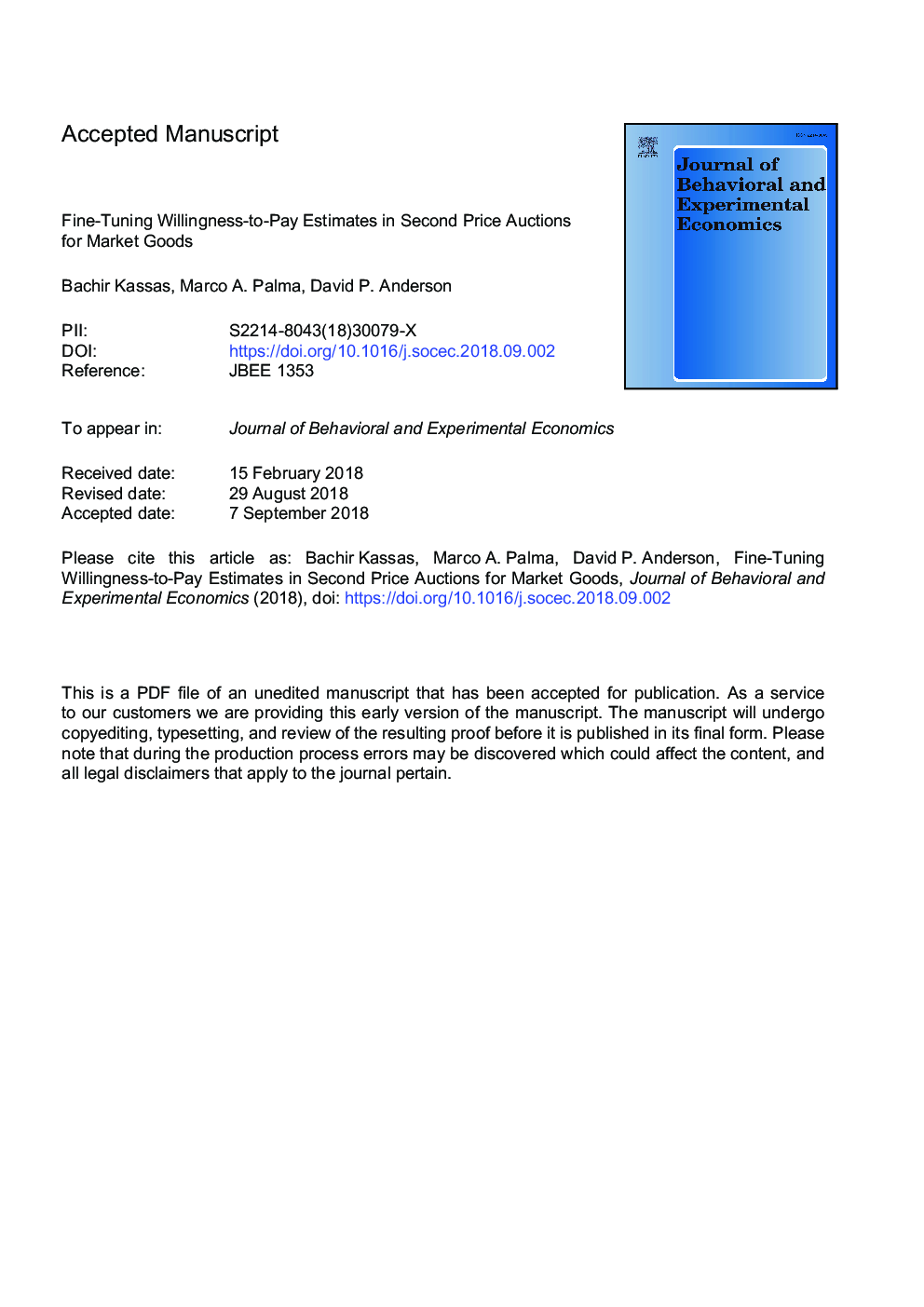| Article ID | Journal | Published Year | Pages | File Type |
|---|---|---|---|---|
| 11023473 | Journal of Behavioral and Experimental Economics | 2018 | 33 Pages |
Abstract
While the vast literature on induced-value second price auctions (SPAs) documents consistent overbidding behavior, this fact is conveniently ignored by some researchers when using SPAs to elicit willingness-to-pay (WTP) for market goods. This raises serious concerns regarding the reliability of the resulting WTP estimates. We propose a simple experimental design that not only tests the external validity of SPA bids in this domain, but also suggests a procedure to help enhance the accuracy of WTP estimates for market goods in SPAs. Following the SPA, participants were offered a randomly chosen price at which they could purchase any amount of the good in an onsite real secondary market. A comparison between the SPA bids and behavior in the secondary market was used to uncover inconsistent subjects, who were classified as either overbidders or underbidders. We find robust evidence that the dominance of overbidding in SPAs leads to an upward bias in the WTP estimates. While this can compromise market good valuations by inflating the perceived value of products, our simple design can be used to adjust the bids in a manner that more accurately resembles the individual's true unobservable valuation for the market good.
Related Topics
Social Sciences and Humanities
Economics, Econometrics and Finance
Economics and Econometrics
Authors
Bachir Kassas, Marco A. Palma, David P. Anderson,
